Brexit: UK heads for December 12 poll after Corbyn backs early election
The UK will vote before Christmas after MPs overwhelmingly supported an election to break the Brexit impasse.
Britain will go to the polls on December 12 after MPs voted overwhelmingly to hold the election in the second week of December — the first Christmas Advent election in 96 years ——to try and break the Brexit impasse.
MPs finally passed the bill on Boris Johnson’s fourth time of trying 438 to 20, a majority of 418.
The vote means parliament will dissolve next Wednesday, November 6 with the Commons sitting on Monday and Tuesday, Leader of the House Jacob Rees Mogg announced.
After his resounding victory, Mr Johnson was cheered and banged into the party room of Tory backbenchers as he began a pep talk to begin the Conservative election campaign.
MP Robert Halfon compared Mr Johnson’s address with Shakespeare’s Henry V, saying: “It was like Henry V at Agincourt.”
But Mr Johnson was more downbeat after the meeting, telling reporters: “It’s going to be a tough election but we will do the best we can.”
READ MORE: Will Boris’ election gamble pay off? | Timing of poll hostage to students | Boris switches tactics | Johnson ‘pouring petrol on division’ | The rise of the unelectable
Labour leader Jeremy Corbyn said he would now launch the most ambitious and radical campaign for real change that the country has ever seen.
“This election is a once-in-a-generation chance to transform our country and take on the vested interests holding people back,’’ he said in a statement.
“The choice at this election could not be clearer: A Labour government will be on your side, while Boris Johnson’s Conservatives, who think they’re born to rule, will only look after the privileged few.
“We will now launch the most ambitious and radical campaign for real change that our country has ever seen. This is our chance to build a country for the many not the few and fit for the next generation. We will now launch the most ambitious campaign for change that we will ever seen.’’
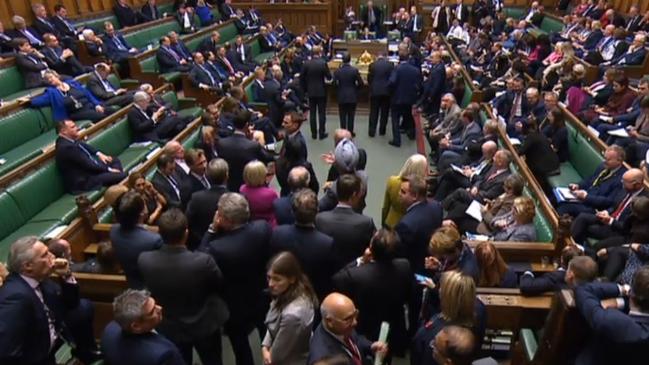
The minority Tory government is currently ahead in various polls by 12 to 16 points – with voters currently buoyed by Prime Minister Boris Johnson’s determination to try and get Brexit done. His strategy is to push a people versus parliament line with a message to move on past Brexit to deliver on other issues confronting the country such as a knife crime epidemic, and the National Health Service funding crisis.
However it is by no means certain that Boris Johnson will be able to win a majority. Analysts believe that such is the turmoil of the current parliament, with an increasing divergence of the vote further to the left or right of centre, there is a strong possibility of a hung parliament.
Labour will push a far left economic agenda, a four day working week, getting rid of universal credit and nationalisation of housing, transport and public utilities. Labour also wants to rid the country of private schools, such as Eton and claw back their land and investments.
But Brexit will still be front and centre, with the Liberal Democrats promising to revoke Article 50 on day one if they are in power, the Scottish Nationalists demanding a second referendum for secession, Labour campaigning on allowing a second Brexit referendum and the Conservatives pushing the European Union deal recently negotiated by Mr Johnson.
The Brexit Party of Nigel Farage will argue any Brexit should be a clean break from the EU without any deal at all.
European Council president Donald Tusk urged his British friends that the Brexit extension to January 31 “may be the last one. Please make the best use of this time’’.
To my British friends,
— Donald Tusk (@eucopresident) October 29, 2019
The EU27 has formally adopted the extension. It may be the last one. Please make the best use of this time.
I also want to say goodbye to you as my mission here is coming to an end. I will keep my fingers crossed for you.
While Labour has dragged its heels on an election, and has had a consistently poor showing in the polls, Mr Johnson will have to fight for a majority.
One of the most experienced and highly regarded political analysts, Sir John Curtice from University of Strathclyde told London radio the safest prediction is that there will be a record number of MPs – possibly more than 100 – coming from outside the Conservative or Labour parties in the next parliament.
“The Scottish National Party look set to win the vast majority of seats in Scotland. The Liberal Democrats, given their position in the polls, should do extremely well. We expect Caroline Lucas and the Green Party to hang on to her seat,’’ Sir John said.
“We could have more than 100 MPs that do not belong to either of the other two parties,’’ he said.
Sir John added that the breakup of the two party system will make it difficult for either Conservative party or Labour to win an overall majority if 100 seats are already spoken for.
He said: “It matters because this is an asymmetric election. It’s an election that Boris Johnson has to win. If he does not get a majority or something very close to it, he will not be able to stay in government because the Conservatives do not have any friends elsewhere.
“The Labour Party, by contrast, at least has the possibility of doing a deal with the SNP, a deal with the Liberal Democrats, getting support of the Greens and maybe even the DUP not standing in their way.
“Bear in mind, this is not an election that Labour have to win to stop Brexit, but it is an election that they and the other opposition parties simply need to deny the Conservatives a majority.’’
In a briefing to the Foreign Press Association in London earlier on Tuesday the Tory rebel Dominic Grieve said the big question was if any party will be able to form a majority.
But Mr Grieve said if Mr Johnson did succeed, “with voters grabbing the coat tails of a populist demagogue,’’ the Liberal Democrats and the Scottish nationalists would push for the general election. He said while the Scottish nationalists and the Liberal Democrats would undoubtedly increase their seats in the next parliament, they would lose their current influence if Mr Johnson won an absolute majority.
Tory MPs are still wary of the polls, with the experience of the most recent general election still fresh in their minds. In 2017 Theresa May called a snap election, at the time holding an absolute majority and polling showing she was ahead by 20 points and would enjoy a landslide victory.
In the end, she lost seats and her government was reduced to a minority government.
MPs vote on December election
Earlier, the way for a vote on a December election was cleared after Labour leader Jeremy Corbyn last night agreed to support a poll to break the Brexit impasse.
The leaders of all major parties agreed earlier this morning to support the election bill, with the only decision now whether it should be held on December 9 or December 12.
Boris Johnson said, when moving the bill: ‘’There is only one way to get Brexit done in the face of this unrelenting parliamentary obstructionism, this endless, wilful, fingers crossed, ‘not me guv’ refusal to deliver on the mandate of the people and that is to refresh this parliament and give the people a choice.’’
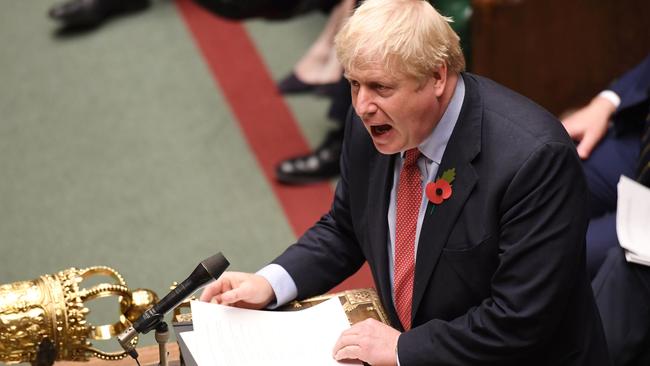
The poll teetered on a knife edge for some hours with so-called “wrecking amendments” threatening to scupper the government’s election plans.
Opposition MP’s were looking to use amendments to the election bill to insist that both European nationals and 16 and 17 year olds could vote in the election.
Downing Street threatened to pull the election bill rather than risk any such significant constitutional changes to be rushed through and briefed that electoral rules meant that if such amendments – put forward by Labour leader Jeremy Corbyn and supported by the Scottish Nationalists and the Liberal Democrats – had succeeded, the election would have had to be postponed by a further six months.
The drama was overcome at the last minute, however, when Deputy Speaker Lindsay Hoyle, overseeing the committee stage of bills, decided not to select the controversial amendments.
The government’s bill calling for a general election on December 12 went through the second reading on the nod earlier Wednesday morning AEDT but one amendment was adopted – that put forward by Labour to change the date of the election to Monday December 9.
Labour and the Liberal Democrats want December 9 to allow students who are registered to vote at their university address easy access to polling stations before the end of the semester.
Mr Johnson wants December 12, as per the usual British convention to hold a general election on a Thursday and to allow parliamentary time to pass the Northern Ireland budget.
As the debates continued, No 10 returned the whip to 10 of the 21 Conservative MPs who rebelled against the government over a no-deal Brexit.
Corbyn to support election bill
Labour had been wrestling with whether to keep a stranglehold on the Boris Johnson minority government or try and break the Brexit deadlock by going to the polls.
It appears that a compromise date of Wednesday December 11 may be put to parliament for ratification.
When asked about his MP’s who doubt holding an election and fear it will play into Johnson’s hands, Mr Corbyn said: “The Labour Party loves a debate – but they also love the end of the debate. And this is the end of the debate, and we’re going out there to win.”
The latest polls indicate that the Conservative party is 12 points ahead and the bookies have the party odds on to win; but the country is so divided there is great uncertainty.
Conservative leader Johnson — overseeing a minority government — is trying to lead Britain out of the deep crisis engulfing its EU departure that was meant to take place this Thursday.
But unable to get parliamentary support for his divorce deal with Brussels, he was forced to abandon his “do-or-die” pledge to leave the bloc on schedule and has begrudgingly accepted another extension until the end of January.
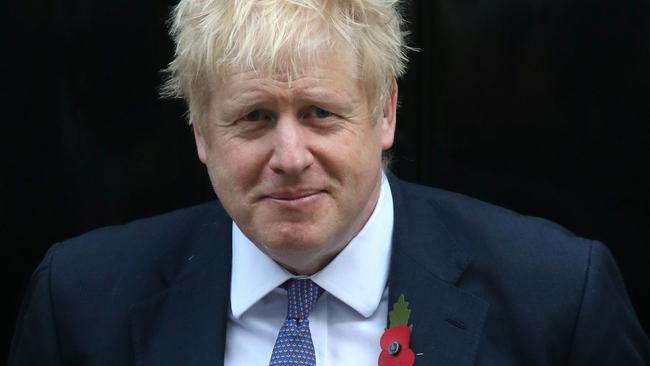
Britain’s inability to break its half-century bond with the EU has halted costly “no-deal” exit preparations and reportedly seen freshly minted 50-pence commemorative Brexit coins melted down.
General elections have been held twice in the last four years — in 2015 and 2017. The next is not scheduled to happen until 2022.
But Johnson has been trying to secure an early vote to try to win a majority to allow him to push through legislation to enact Brexit.
His third attempt to get parliament to agree to disband early and hold a general election on December 12 ended in failure on Monday after he fell well short of the required support of two-thirds of MPs.
But he was making a fresh bid for the same date on Tuesday using a different parliamentary procedure that would only require a simple majority.
He consulted his cabinet ministers to plot strategy in advance of another gruelling session of the lower House of Commons that could stretch into the night.
Johnson’s new attempt amends existing laws requiring a two-thirds majority by proposing a simple bill with an election date.
“This house cannot any longer keep this country hostage,” Johnson told MPs after they defeated Monday’s election attempt.
Date debate
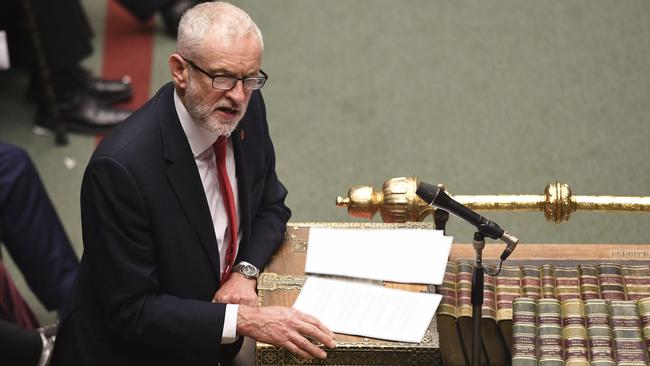
Johnson’s election push received a big boost when the leader of the main opposition Labour Party, Jeremy Corbyn, indicated his support.
Veteran socialist Corbyn has been torn between rival camps within his own party and is facing poor polling numbers that show the Conservatives in a strong lead.
He has argued he cannot back an election until Johnson promises not to take Britain out of the EU without a new trade deal when the post-Brexit transition period ends in December 2020.
Britain would be following EU rules until that time.
But he said the latest delay to Brexit agreed by EU leaders on Monday meant “for the next there months, our condition of taking no-deal off the table has now been met”.
“We will now launch the most ambitious and radical campaign for real change our country has ever seen,” he added.
The sides must now settle on an election date.
Johnson insists on December 12. A rival plan proposed by the pro-European Liberal Democrats and the Scottish National Party (SNP) proposes December 9.
The second option is also preferred by Labour.
Some in the party say the later date reduces the number of more liberal students voting because it comes after they finish their semesters and return home for the winter break.
Labour’s trade spokesman Barry Gardiner told BBC radio “the first thing” for Johnson to do to get his party’s backing was “to ensure that students are not going to be disenfranchised by an election on December 12”.
Corbyn did not specify a date in his statement.
“It will be a December election,” a Labour source told AFP.
The last election to be held in December was in 1923, when Labour’s Ramsay McDonald lost to the Conservatives led by Stanley Baldwin.
The debate appears to be one of principle.
The SNP’s parliamentary leader Ian Blackford urged Labour to not “be the handmaidens to the prime minister’s Brexit” and to fight for the earlier date.
Johnson is mainly concerned about amendments that could be attached to his bill. One proposed option would extend voting rights to EU citizens — a group that strongly opposed Brexit.
Another would lower the voting age from 18 to 16.
Additional reporting: AFP


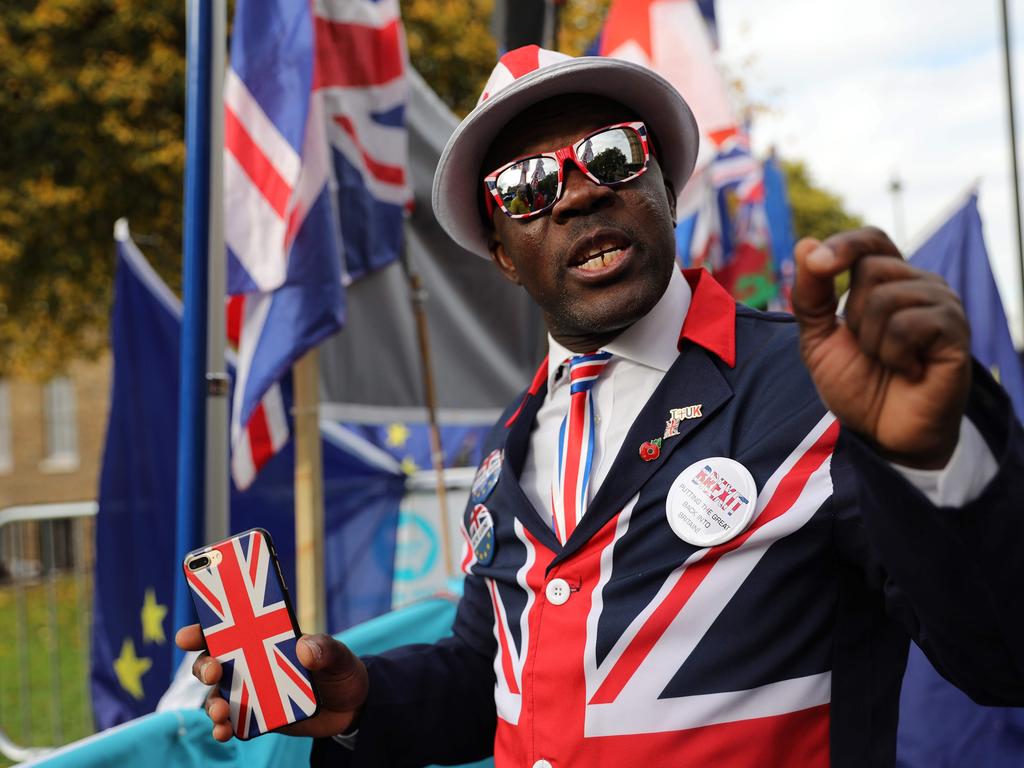


To join the conversation, please log in. Don't have an account? Register
Join the conversation, you are commenting as Logout